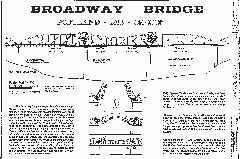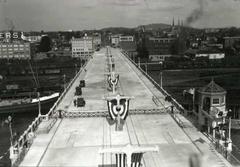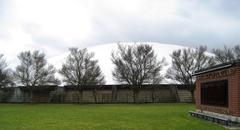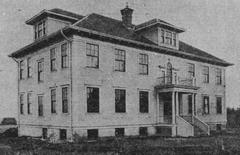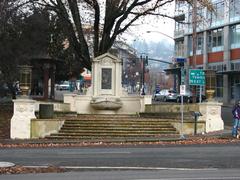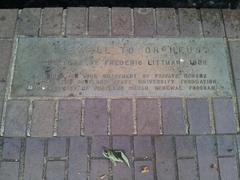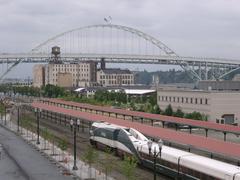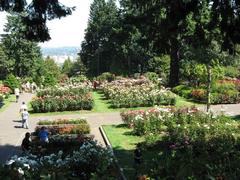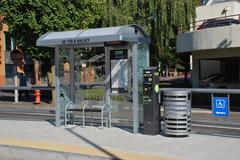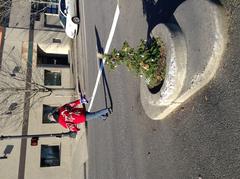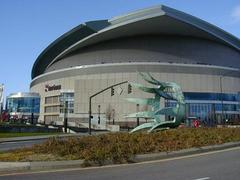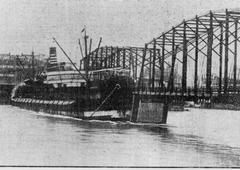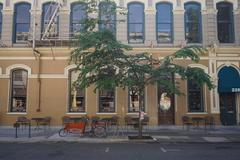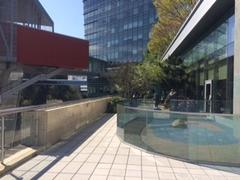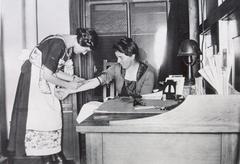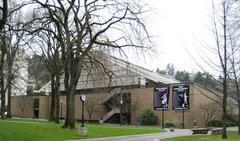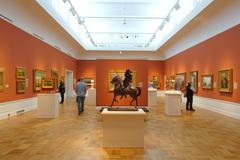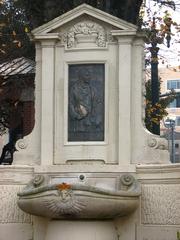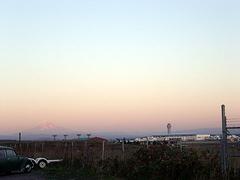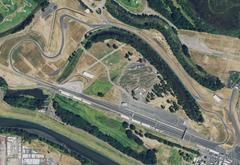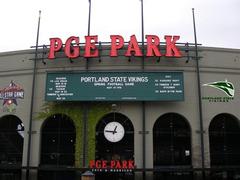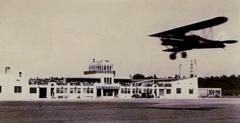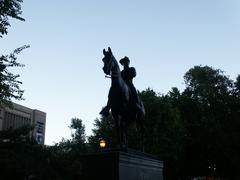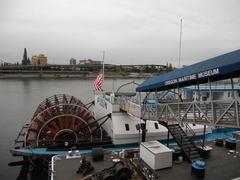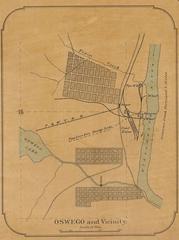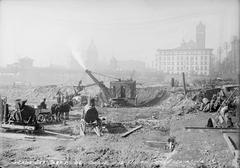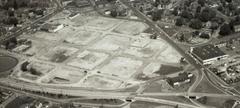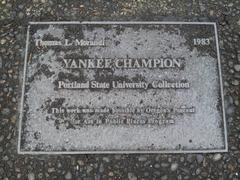The Roxy Portland: Visiting Hours, History, and Cultural Significance
Date: 04/07/2025
Introduction
Nestled in the heart of downtown Portland, Oregon, The Roxy diner was far more than a 24-hour eatery—it was a cornerstone of the city’s nightlife and a sanctuary for the LGBTQ+ community for nearly three decades. Since its opening in 1994, The Roxy became an emblem of inclusivity, resilience, and Portland’s quirky spirit. Known for its eclectic menu and welcoming atmosphere, it played a pivotal role in shaping the city’s cultural and social landscape. Though it closed permanently in 2022, The Roxy’s legacy endures as a symbol of safe, community-driven spaces in Portland.
Table of Contents
- Historical Background
- The Roxy and LGBTQ+ Community
- Visiting The Roxy: Hours, Location & Accessibility
- Special Events and Unique Experiences
- Nearby Attractions and Travel Tips
- Visual and Media Recommendations
- FAQs
- Conclusion
- References and Further Reading
Historical Background
Founding and Early Years (1994–2000)
Founded by Suzanne Hale in 1994, The Roxy quickly established itself as a 24-hour diner that welcomed everyone, regardless of background or identity. Located on Southwest Harvey Milk Street (previously SW Stark Street), it thrived at the epicenter of Portland’s nightlife and LGBTQ+ scene (KPTV). The Roxy’s all-ages, all-hours policy was rare at the time, especially for LGBTQ+ spaces, making it a crucial gathering point for those excluded from age-restricted venues (OPB).
Evolution as a Cultural and Social Hub
By the late 1990s, The Roxy became synonymous with Portland’s vibrant, alternative culture. Its irreverent menu—featuring playful items like “Arrogant French Toast” and “Dolly Parton Pancakes”—and its eclectic décor (including neon lights, a jukebox, and whimsical artwork) reflected the city’s creative ethos (KGW). The diner attracted a diverse clientele: artists, students, shift workers, and partygoers seeking a welcoming, late-night refuge.
Staffed by a loyal team—many of whom worked there for decades—the diner was renowned for its camaraderie and strict no-tolerance policy against harassment. Owner Suzanne Hale, “The Lovely Suzanne,” was celebrated for her tough love and unwavering support for staff and patrons alike.
The Roxy and LGBTQ+ Community
A Safe Haven and Community Anchor
The Roxy’s role as a sanctuary for Portland’s LGBTQ+ community cannot be overstated. Unlike most queer spaces of the era, The Roxy’s all-ages, sober-friendly environment allowed young people and those excluded from bars and clubs to gather safely (OPB). Its proximity to the Burnside Triangle—Portland’s historic LGBTQ+ nightlife district—reinforced its importance as a community anchor.
The diner’s inclusive ethos was embodied by its staff, many of whom identified as LGBTQ+. Regulars fondly recalled the sense of acceptance and safety, with one noting, “A 24-hour restaurant can be a sketchy place, but it wasn’t here. That’s why people felt safe; we didn’t tolerate any of that.”
Community Engagement and Social Impact
The Roxy hosted community events, participated in local Pride celebrations, and frequently served as a meeting spot for LGBTQ+ youth and organizations. It was formally recognized as a key site in Portland’s LGBTQ+ Historic Sites Project (Portland.gov), highlighting its significance in the city’s queer heritage.
Visiting The Roxy: Hours, Location & Accessibility
Location
- Address: 101 Southwest Harvey Milk Street, Portland, OR 97205
- The Roxy was centrally located, within walking distance to major nightlife hubs and cultural venues.
Visiting Hours
- Historic Hours: Open 24 hours a day, seven days a week (except Mondays, pre-pandemic).
- Closure: The Roxy permanently closed on March 20, 2022 (Reddit).
Accessibility
- The Roxy was wheelchair accessible, with barrier-free entrances and restrooms.
Tickets and Entry
- No tickets or reservations were required; it operated as a traditional diner with walk-in seating.
Special Events and Unique Experiences
The Roxy was known for its vibrant community events and late-night atmosphere:
- Drag Queen Story Time: Fostering inclusivity and fun for all ages.
- Live Performances: Showcasing local artists and musicians.
- Media Features: The Roxy was featured on Netflix’s “Somebody Feed Phil,” highlighting its cultural impact.
Nearby Attractions and Travel Tips
While The Roxy is no longer open, the surrounding area remains rich in LGBTQ+ heritage and nightlife:
- Burnside Triangle: A historic LGBTQ+ nightlife district.
- Scandals Bar: A longstanding LGBTQ+ bar adjacent to The Roxy’s former location.
- Portland Pride Plaza: A vibrant public space celebrating the LGBTQ+ community.
- Crystal Ballroom: Iconic music venue nearby.
- Guided Tours: Local organizations offer LGBTQ+ history walking tours in downtown Portland.
Travel Tips:
- The area is pedestrian-friendly and accessible by public transportation.
- Several hotels and parking options are available in the vicinity.
Visual and Media Recommendations
-
Photos: Seek out archival images of The Roxy’s neon sign, checkerboard floors, and colorful menu items.
-
Alt Text Suggestions:
- “The Roxy Portland neon sign glowing at night”
- “Interior of The Roxy diner with eclectic décor”
- “Historic LGBTQ+ sites map highlighting The Roxy’s location”
-
Interactive Maps: The City of Portland’s LGBTQ+ Historic Sites StoryMap provides a visual guide to The Roxy and other significant locations.
FAQs
Q: What were The Roxy’s visiting hours?
A: The Roxy was open 24 hours a day, seven days a week, except Mondays pre-pandemic.
Q: Where was The Roxy located?
A: 101 Southwest Harvey Milk Street, downtown Portland, Oregon.
Q: Was The Roxy wheelchair accessible?
A: Yes, it featured accessible entrances and restrooms.
Q: Did The Roxy require tickets or reservations?
A: No, it was a traditional diner with walk-in seating.
Q: Is The Roxy still open?
A: No, it permanently closed on March 20, 2022.
Q: What are some nearby LGBTQ+ friendly places?
A: Scandals bar, Burnside Triangle, local murals, and community centers in downtown Portland.
Conclusion
The Roxy Portland was much more than a late-night eatery—it was a cultural touchstone and a safe haven that helped define Portland’s inclusive, creative, and resilient spirit. Its closure in 2022 marked the end of an era, but its legacy lives on in the stories and memories of those it served. Visitors and locals can continue to honor The Roxy by exploring Portland’s LGBTQ+ history, supporting legacy businesses, and engaging with preservation efforts that celebrate the city’s diverse heritage.
To deepen your exploration, consult the City of Portland’s LGBTQ+ Historic Sites Project, join a guided history tour, or use mobile apps like Audiala for curated insights and event tips. The Roxy’s enduring influence is a testament to the power of community-driven spaces and the importance of safe, welcoming environments for all.
References and Further Reading
- This is a sample text. (KPTV)
- This is a sample text. (OPB)
- This is a sample text. (KGW)
- This is a sample text. (Portland Monthly)
- This is a sample text. (OregonLive)
- This is a sample text. (KATU)
- This is a sample text. (Reddit)
- This is a sample text. (Portland.gov)
